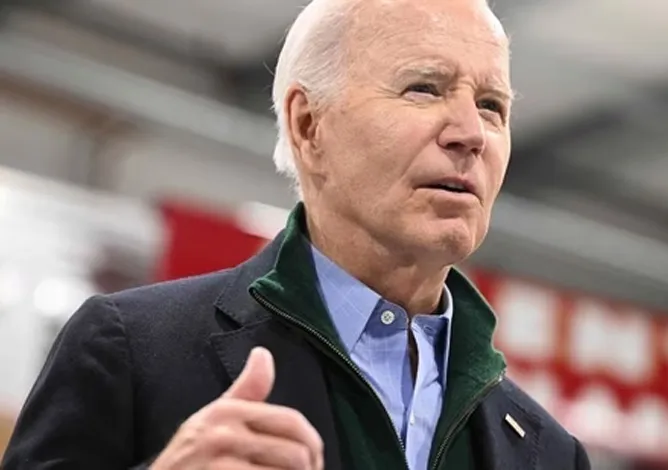At the beginning of 2024, United States (US) foreign policy finds itself at a crossroads with multiple pulls. First, the US is torn by the compulsions of two wars, one in Europe and the other in West Asia. The domestic repercussions from these external compulsions are far reaching for the Biden administration. Externally, a strong support for both Ukraine and Israel may have signaled the US’s resolve in supporting allies on the principles of sovereignty, preservation of democracy and unshakable commitment towards counterterrorism. Internally, the Biden administration hasn’t been able to translate these seemingly robust steps into political support. On the contrary, polls indicate that president Biden may be one of the least favoured US presidents in a long time. For the Democratic Party, a bigger concern is that former president Donald Trump leads in almost all polls. The political and security dynamic resulting from this is likely to impact the US’s foreign policy posture and orientation for at least half a decade to come.
A strong support for both Ukraine and Israel may have signaled the US’s resolve in supporting allies on the principles of sovereignty, preservation of democracy and unshakable commitment towards counterterrorism.
The US is reeling in the throes of policy choices made in the last few years. 2023 presented both opportunities and challenges for US foreign policy. As the world’s preeminent superpower, Washington sought to assert leadership amidst a shifting geopolitical landscape through legislative initiatives like the CHIPS and Sciences Act and a strategic step in the Indo-Pacific with AUKUS in 2021. However, rival powers increasingly tested the US with Russia dragging the war on in Ukraine circumventing sanctions and China pushing boundaries in the South China Sea as well as in the sky with the ‘spy balloon’ incident.
China has been a defining foreign policy issue for the US and managing China’s growing military, economic, and technological assertiveness is perhaps the foremost long-term challenge. China is likely to dominate US foreign policy regardless of who comes to power in the US presidential elections later this year. In the area of semiconductor production, a key 21st century technology, the US passed the bipartisan CHIPS and Science Act last year to boost domestic manufacturing capacity and competitiveness even as it loses ground to Asia in cutting-edge fabrication and design innovation. To counter China’s growing regional clout, the US moved to strengthen the Quad, AUKUS and forged the Indo-Pacific Economic Framework (IPEF) trade partnership with 12 regional partners. Meanwhile, Chinese economic diplomacy has deepened ties with Russia and Iran over the past year, providing economic lifelines to Tehran and Moscow. The US withdrawal from the Joint Comprehensive Plan of Action deal in 2018 and its 2021 withdrawal from Afghanistan created strategic vacuum in the region that has contributed to widening regional fractures since. China swooped in to create some regional space by brokering in normalisation of diplomatic relationship between Saudi and Iran.
China is likely to dominate US foreign policy regardless of who comes to power in the US presidential elections later this year.
At November 2023 Asia-Pacific Economic Cooperation (APEC) summit, President Biden met China’s President Xi Jinping but major differences persisted over trade, technology, and security. The summit announced initiatives like the 'Global Gateway' agenda to collaborate on climate, health, and food security. The US also proposed Digital Connectivity Partnership for the Indo-Pacific at the APEC summit. Despite rivalry with China, Washington recognises shared interests in tackling transnational challenges multilaterally. Promoting high-standard digital rules and sustainable infrastructure investment underscores US multilateralism alongside competition.
The grinding war in Ukraine that began with Russia’s invasion in early 2022 posed another critical test for American statecraft in 2023. The Russia-Ukraine war has exacerbated instability across wider Europe and starkly highlighted the limitations of US power and deterrence credibility among eastern North Atlantic Treaty Organization (NATO) allies like Poland and the Baltic states. The US played a critical role in catalysing NATO’s reinvigoration and internal strengthening in the face of Russian military belligerence. Increased European defence budgets and new cooperative initiatives now help rejuvenate this US-led security bulwark centered on collective defence and deterrence against aggression from Moscow. At the United Nations, deft US diplomacy helped avert Russian or Chinese veto of critical resolutions addressing the Ukraine war and Syria conflict while also assuaging Israeli concerns.
On democracy and human rights, reversals like the Taliban’s severe repression of women and girls in Afghanistan despite US pressure showcased the limits of America’s democracy dissemination.
A key foreign policy goal outlined by Washington in 2023 was expanding strategic ties with a rising India. However, differences remain over issues like India’s reluctance to follow US leads on isolating Russia. Managing tensions between India and Pakistan also remains a perennially tricky balancing act for US diplomats. In West Asia, a long-standing area of US strategic concern, US policy left gaps for other players like Russia and China, as Washington focused intently on other pressing geopolitical issues in 2023. On democracy and human rights, reversals like the Taliban’s severe repression of women and girls in Afghanistan despite US pressure showcased the limits of America’s democracy dissemination. Lingering questions about America’s own commitment to democratic principles and political polarisation in the light of January 6, 2021 insurrection also provide easy ammunition for autocratic rivals like China and Russia to exploit.
Overall the foreign policy landscape of Biden administration leaves a rather ambivalent legacy for American statecraft and leadership. US global military primacy and the fundamentals of its strategic advantages remain demonstrably unrivaled in the foreseeable future. However, the proliferation and increasing complexity of challenges to US interests continue to expand and shift, markedly more so than over the past decade. Navigating China’s ascent to genuine global power status now represents the most urgent long-term task facing the US’s grand strategy. Washington must also cautiously manage a shrinking yet still nuclear-armed Russia, rejuvenate traditional diplomatic tools like development aid and public messaging, as well as catalyse new collective security frameworks for the disruptive technologies age. With adaptiveness, principled pragmatism and renewed investments at home, US foreign policy can sustain American leadership in this more complex world.
This commentary originally appeared in Hindustan Times.
The views expressed above belong to the author(s). ORF research and analyses now available on Telegram! Click here to access our curated content — blogs, longforms and interviews.




 PREV
PREV


